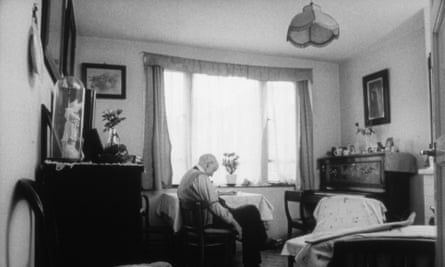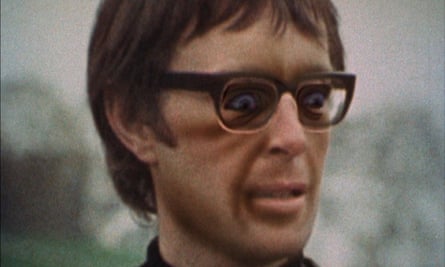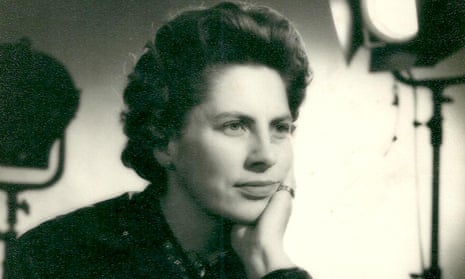The producer Anne Balfour-Fraser, who has died aged 92, oversaw the making of some 100 short films between the mid-1950s and mid-80s. Very varied, their common thread was an artistic, humanitarian sensibility and a sensitive cultivation of directing, camera and editing talent. Among those who at some point worked at her premises in Brewer Street, London, were Kevin Brownlow, John Krish, Mamoun Hassan, Peter K Smith, the German theatre director Peter Zadek and the eminent producer of Polanski and others, Timothy Burrill.
She was born in Woking, Surrey, into an illustrious family. Her grandfather was the Conservative politician Gerald Balfour, who succeeded as Earl of Balfour on the death of his brother Arthur, the Conservative prime minister; her grandmother Lady Betty (nee Bulwer-Lytton) was a leading moderate suffragist; and her great-aunt was the more militant suffragist Lady Constance Lytton, who was imprisoned several times. Anne’s parents were Bill Balfour, an officer in the Scots Guards, and his cousin Lady Ruth Balfour, who led the Scottish Women’s Voluntary Service during the second world war.
Anne was brought up at the family home, Balbirnie, near Markinch, Fife, and attended St Leonards school, St Andrews. After working in a laboratory during the war, she studied singing at the Royal Academy of Music, London, going on to perform opera professionally (not least at La Scala, Milan). Judging that a long-term musical career was not on the cards, she turned to film, her musical background informing her first productions, a series of charming shorts dubbed Music in Miniature. Her production company name, Inca, stood for Independent Cine Art. It produced a fiction short, Simon (1956), directed by Zadek, but a viable short-films career meant turning to the thriving field of institutional sponsorship.
A new name, Samaritan Films, signalled a compassionate outlook informing fine social documentaries. Krish’s piercing masterpiece I Think They Call Him John (1964), which depicted a solitary day in the life of an elderly man, was made possible by Balfour-Fraser’s fundraising; Richard Bigham’s Cast Us Not Out (1969) is another moving documentary about old age, sponsored by the Jewish Welfare Board. Medical films proved a Samaritan specialism: a series on ophthalmology enjoyed two decades’ use in teaching hospitals, while films promoting family planning, nationally and internationally, were a worthy contribution to film as a medium for change.

For the Central Office of Information, Balfour-Fraser produced nursing training films demystifying such misunderstood topics as psychiatric illness and learning disability. She was equally at home with other genres: wary of pigeonholing, she renamed the company Balfour Films in 1970. (She later revived the Inca name for projects in the Middle East, where the family name remained tainted thanks to the Balfour Declaration of 1917, the letter from Arthur Balfour to Baron Rothshild stating his support for the creation of a Jewish state in Palestine.) It produced two fiction-comedy projects for the Children’s Film Foundation: Junket 89 (1970) and the serial The Trouble with 2B (1972).
Never Go With Strangers (1971), also aimed at children, is remembered as a classic COI public information film: shown on TV and in schools, it was probably Balfour-Fraser’s most widely seen production. This film was directed by the talented Indian-born film-maker Sarah Erulkar, a regular collaborator (their film A Woman’s Work (1961) reportedly reached 1 million viewers via Women’s Institute bookings).
Corporate commissioners included construction and pharmaceutical firms, the Post Office, British Gas, BT and BP, a repeat client on films including cult novelty short The Oil in Your Engine (1975). Turkey – The Bridge (1966) and The Shetland Experience (1977), both beautifully directed by Derek Williams, were Oscar-nominated. Other Balfour-Fraser productions won accolades at Bafta and industrial, science and medical film festivals worldwide.

Perhaps Balfour-Fraser’s most widely respected and personally satisfying project was a tasteful cycle of documentaries about painters, commissioned over two decades by the Arts Council of Great Britain. Francis Bacon: Paintings 1944-62, directed by David Thompson, complemented a Tate retrospective and benefited from an atonal score by Elisabeth Lutyens (a cousin who scored several of Balfour-Fraser’s films).
Thompson’s The Pre-Raphaelite Revolt (1967) played at the Curzon Cinema in London for nearly five months as the supporting item for Luis Buñuel’s Belle de Jour. Other subjects included Rubens, Rembrandt, Turner, Monet, Burra and Bridget Riley.
Outside film, Balfour-Fraser was a stalwart fundraiser and speaker for the Anti-Slavery Society (today named Anti-Slavery International) and a keen gardener. She had a fascination for deserts and a phobia of the sea.
Balfour-Fraser has been described as a pragmatic feminist, arguing: “Women can achieve everything, but it’s appallingly hard work and… shouldn’t be as difficult as it is.” Very few of her female contemporaries held executive film industry roles.
In an industry littered with betrayals and grudges the widespread warmth with which colleagues remember Balfour-Fraser is telling. Brownlow recalls “a benevolent, charitable person” who encouraged his personal projects, while Timothy Burrill said: “In 1956 I pierced my bowler hat with my umbrella, left the City and joined Anne’s documentary film company: her enthusiasm, optimism and entrepreneurial skills have been my inspiration for 60 years.”
In 1947 she married General Sir David Fraser. They divorced in 1952 but remained friends until his death in 2012. She is survived by their daughter Antonia, grandchildren Amaryllis and Edan and great-grandchildren Skye and Luke.

Comments (…)
Sign in or create your Guardian account to join the discussion